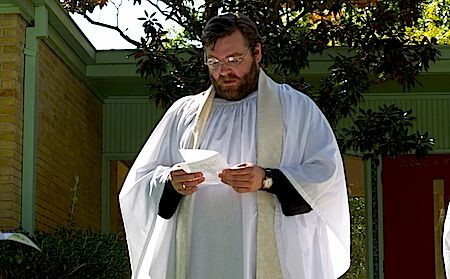Theology Matters: Why do we live apart from God and Out of Harmony with Creation?

Life apart from the Creator, and life out of harmony with his creation, are phenomena by nature connected to one another, in much the same way that you couldn’t know much that’s worth knowing about Picasso if you had never seen any of his paintings.
The urbanization of the West, which began in earnest in the 12th century, and has reached a crescendo in our own day, has much to do with our disconnection from the primary realities of creation. It wasn’t until the late 1990’s that more people lived in cities in the American South than lived in the countryside. This aggregation of people in cities is speeding up and intensifying and becoming universal (as of 2016, China has sixty-one cities with populations over one million), and it is of the essence of the phenomenon called “globalization.” Research indicates a temporal correlation between urbanization and the decline of religious faith in American culture. Correlation does not imply causation, granted, yet religious faith wanes in our nation as our population has centralized in cities.
Economic liberalism (otherwise known as market capitalism), and its handmaiden, rapid technological advancement, have been important drivers of this demographic shift. Genetically modified seeds and other automated equipment have made it possible to grow and harvest food much more efficiently than was ever possible before – on much less land, with much less human input. There is simply not much for people to do outside of cities anymore.
Social liberalism too, the bedrock of western societies, has meant a drive toward the maximizing of individual autonomy, an atomistic conception of “freedom” that construes selfhood as a function of choice, and no longer something “given.” And nature, the primary realities of creation, is an impediment to such autonomy. Thanks to free markets and cheap energy, it is now possible to eat tropical fruit year-round in New Hampshire. Thanks to central heat and air conditioning, I can now be cold in summer and warm in winter. Thanks to hormone therapy and surgical interventions, I can now live my life as a woman if I so choose. Thanks to ready access to safe abortions and other “reproductive technologies,” my sexuality is now an instrument of my freedom, no longer yoked to biological realities and related responsibilities. Mariners no longer navigate by the stars.
In the foregoing, I have not made any value judgments – which isn’t to say that I wouldn’t, nor that I oughtn’t. These realities are simply facts of our time and place. We are isolating ourselves from nature ever more and more, seeing it as an impediment to our individual autonomy.
Like any relationship, our communion with God must be cultivated. Couples that never see or speak with each other naturally drift apart. And nature is God’s most primordial word to us, what medieval theologians called the “analogia entis,” the “analogy of being.” The witness of scripture and the Church fathers is unequivocal. Job says, “…ask the beasts, and they will teach you; the birds of the air, and they will tell you; or the plants of the earth, and they will teach you; and the fish of the sea will declare to you,” (Job 12:7-8).
And there are the immortal opening words of Psalm 19: “The heavens declare the glory of God; and the firmament showeth his handy-work…. There is neither speech nor language; but their voices are heard among them. Their sound is gone out into all lands; and their words into the ends of the world.”
Saint Paul even says that the Gentiles have no excuse for turning away from God: “For what can be known about God is plain to them, because God has shown it to them. Ever since the creation of the world his invisible nature, namely, his eternal power and deity, has been clearly perceived in the things that have been made,” (Romans 1:19-20).
Saint Augustine writes movingly in Book 10 of his Confessions about the witness born by nature. “I questioned the earth… I questioned the sea and the depths, and the creeping things which have life… I questioned the blowing winds, and the whole air with its inhabitants… I questioned the heavens, the sun, moon, stars…. And they cried out with a loud voice, ‘He made us!’”
Less and less in our time and place do we hear this most primordial of God’s words. Less and less are we able to speak the language of creation’s primary realities. I was hoping recently to watch the Perseid meteor shower, but when I went into my front yard, the city lights obscured the stars.


